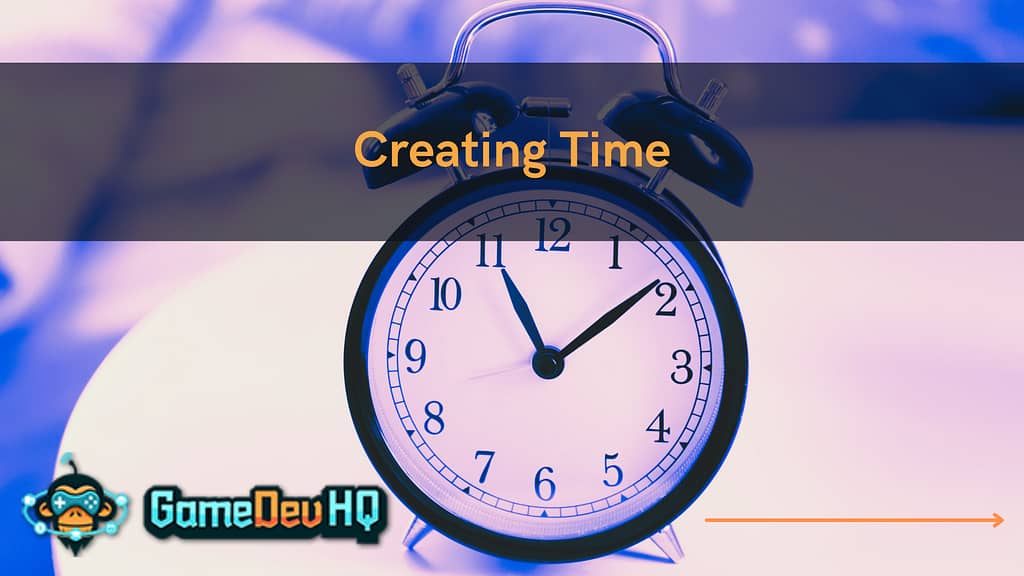The number one challenge I hear from our students is “I’m struggling to find the time to make the progress I want.” I get it, life happens, and hours can disappear in the blink of an eye.
That being said, I am convinced that this is often more about appearances than reality. I have found in my own life that if I am deliberate and intentional I can create more productive time out of exactly the same 24 hours.
In this article, I will cover 3 principles about time management and then give you 2 practical take-aways.
Time Principle 1 — A task will always expand to the amount of time you give it
Have you ever had a project you knew should take you about 30 minutes but you had 2 hours until your next meeting? Without fail, what should have taken 30 minutes expands to fill the entire 2 hours, and your sitting there shaking your head wonder what the heck just happened.
We have to keep this in mind when we are planning out our day and understand that more structure equals more productivity.
Time Principle 2 — You have the power to dictate what happens in your life
This is one of those “adult truths” that I didn’t learn until well into my 40s. I was taught growing up that life just happened to me and my only option was to just react. I’m so thankful for the therapist who taught me that I can choose to be a proactive force in my life. I can choose where my time goes. I can choose where my money goes. I can choose where my energy goes.
Just because something comes up and clamors for my attention doesn’t mean I need to respond to it. I can say “no” that is not my concern or I’m not going to worry about that now. I can decide what is important in my life and either ignore or reschedule the urgent. There is a great article about this called The Tyranny of the Urgent. I highly recommend giving it a quick read.
This is not about saying “no” and detaching about everything. This is about believing that you have the authority over your own life, what you let in, and what you don’t.
Time Principle 3 — You and your dreams are worth the time and they need to be prioritized
Very few things reveal our priorities like how we spend our time and our money. When I was a teacher, I found that I spent so much of my time and energy reacting to others (see principle 2) and how they wanted me to spend my time (parent emails at 10 o’clock at night, requests from administrators, etc.).
I found so much freedom when I decided to leave work at work and prioritize myself and my family.
- I became more productive during my work hours.
- I was more present with my family.
- My family was more willing to give me extra time for work when I needed it (because it wasn’t all the time).
If you try to fit your self-improvement and dreams into the “extra” time that life allows, then you will be waiting for a really long time. You need to choose to make time for yourself and your priorities. Which leads us to our take-aways.
Take-Away 1 — Determine your priorities
You can’t make good decisions about how to use your time until you know what is important to you.
- Self-improvement through programs like GameDevHQ
- Time with your family
Your health — physical, emotional, and spiritual - Time with friends
Your hobbies (gotta have time for you games right 😉)
Everyone’s priorities will be a little different, but you need to decide what they are and write them down. When a new opportunity comes along, I evaluate against my priorities. Does it match with what I want for my life? If it does, then I’ll make a space for it, but if it doesn’t then I don’t (no matter how cool it may be).
If you are married, then it is critical that you have this conversation with your spouse. Your priorities are more likely to become a reality when you are both on the same page.
Take-Away 2 — Use a calendar as your time budget
Now that you have your priorities, you need to create your schedule to match. I use iCalendar for my personal life and my wife & I share our calendars with each other. I have it color coded for work, family, and personal.
It takes some time to get used to and you have to learn what is realistic and what is not, so be patient with yourself. No one gets this perfect the first time. Heck, I still don’t get it perfect every week.
Bonus — Once you have the rules, know when to break them
Sometimes life intervenes and you need to know when to step out of your planned schedule.
Just last week, my wife was having a rough day and the kids were getting on her nerves. I chose to give up 3 hours of work time to get home early and take the kids to the park. My wife and I discussed it, decided it fit with our priorities, and then negotiated where I could make up some of that work time later in the week.
Do you see how we used the principles and take-aways to create a solution that worked for both of us? This can be possible for you to.






